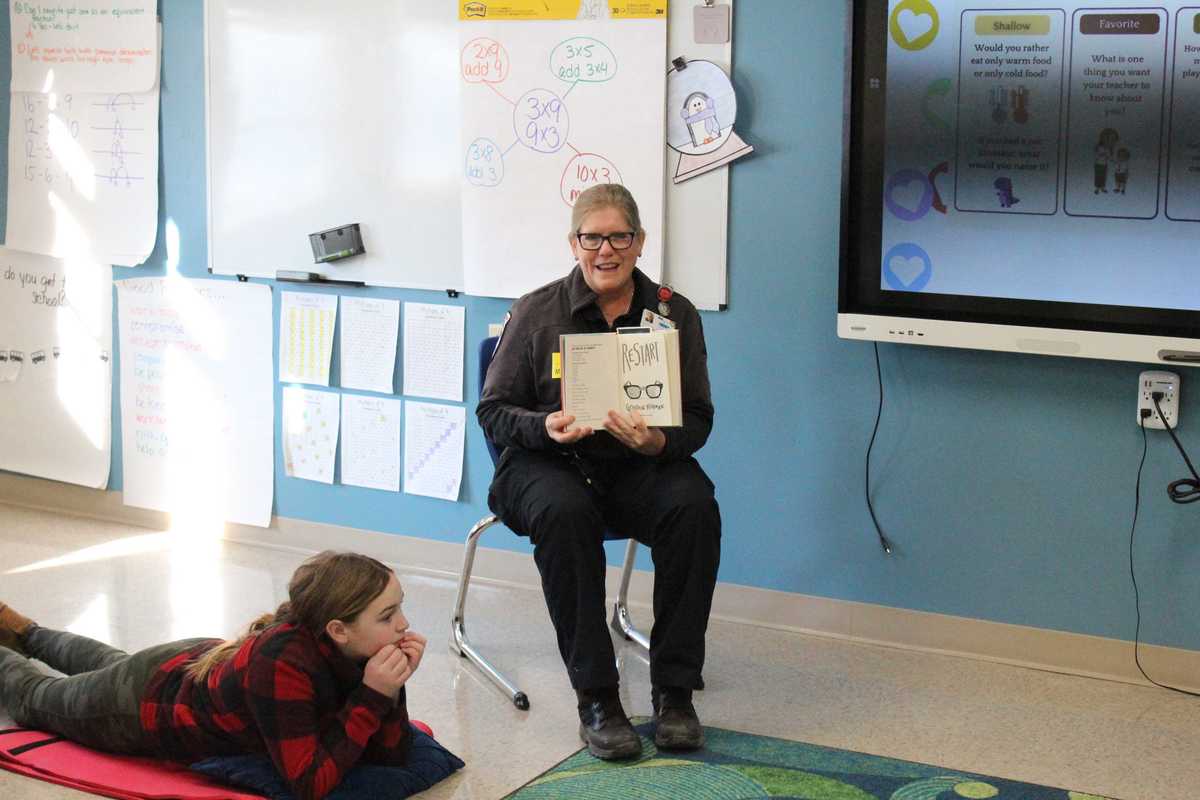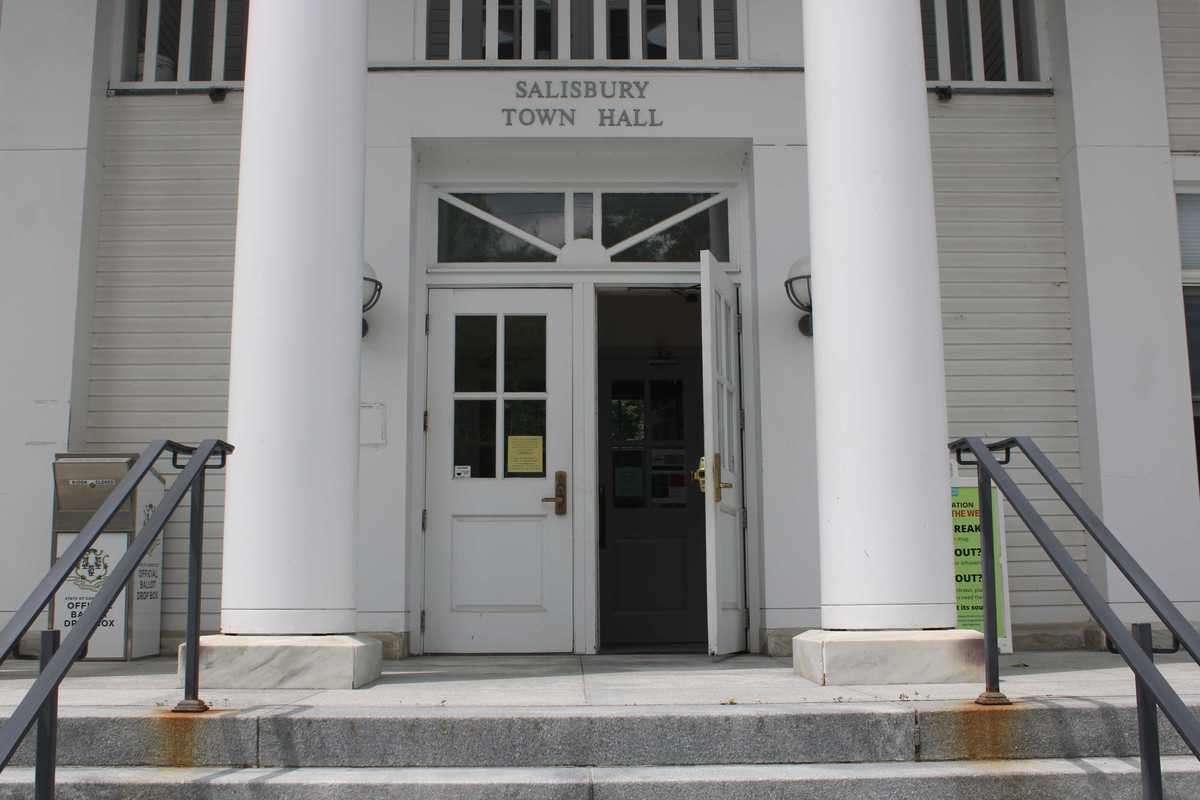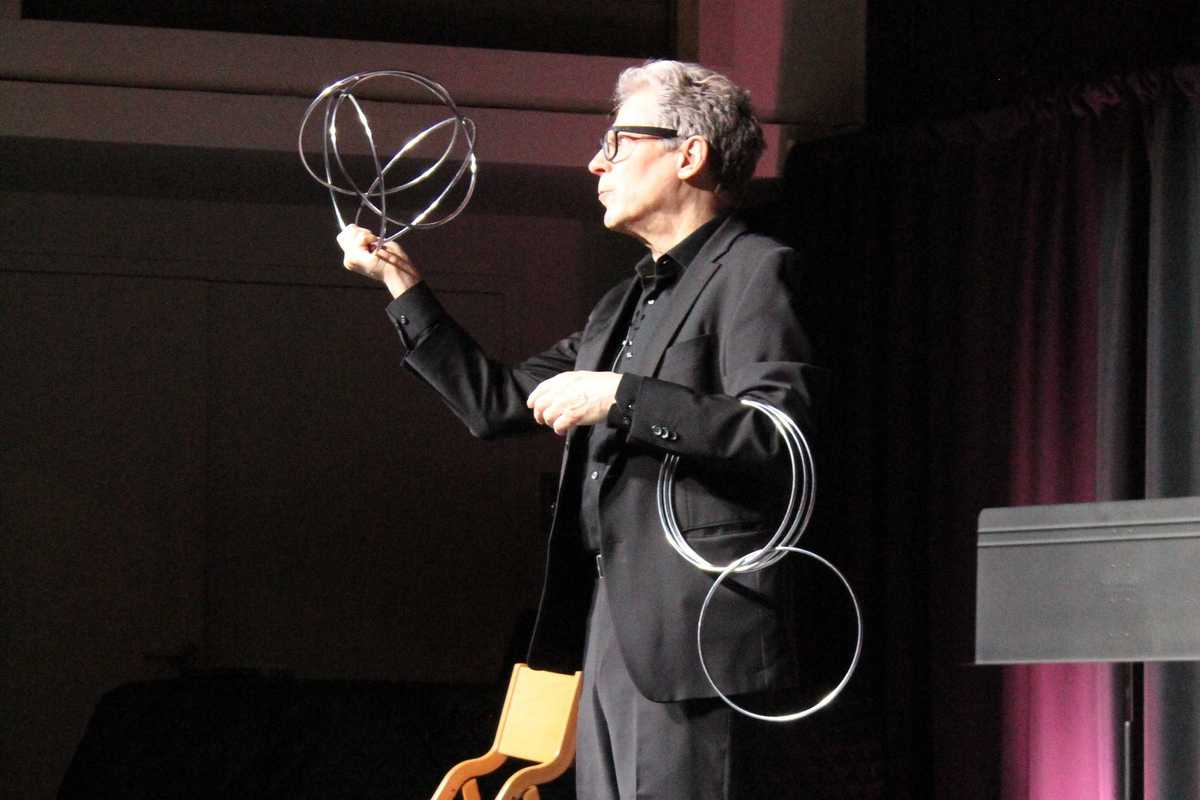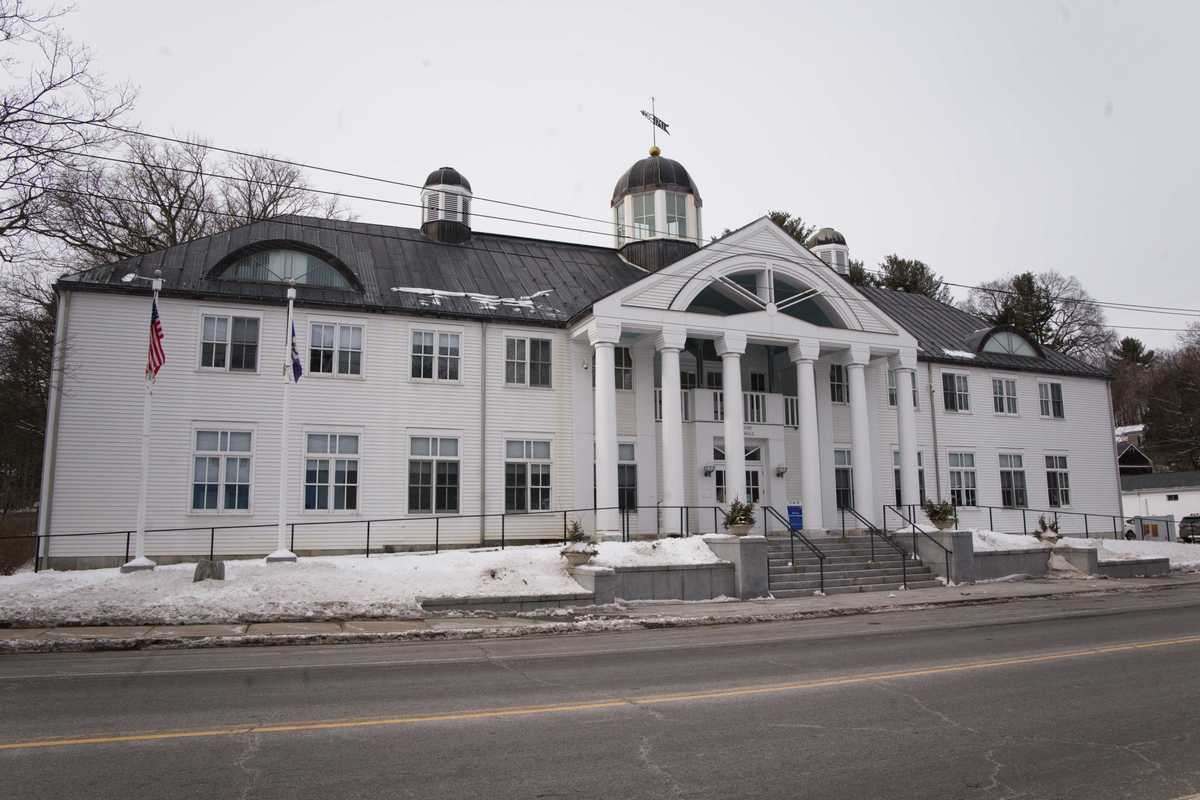Latest News
Read Aloud Day comes to Kellogg
Feb 11, 2026
Andrea Downs reads to students at Lee H. Kellogg School for Read Aloud Day Wednesday, Feb. 4.
Patrick L. Sullivan
FALLS VILLAGE — Wednesday, Feb. 4 was Read Aloud Day at Lee H. Kellogg School. Members of the community made their way into the school and milled about in the library, enjoying coffee and breakfast pastries, and brushed up on the books they were going to read.
A little before 9 a.m., students appeared to escort the readers to the various classrooms.
Andrea Downs read “Restart” by Gordon Korman.
She confessed she hadn’t finished the book, “but Ms. Blass is going to let me take it home to finish.”
The readers were Michelle Hansen, Meg Sher, Caitlyn Robbins (from National Iron Bank), Emily Peterson, Becca Malone (from Community Health and Wellness), Dave Barger, Liz Ives (owner of the Off the Trail Cafe) and Downs.
Keep ReadingShow less
Salisbury Town Hall
Aled Linden
The telecoms regulations were established when Connecticut’s municipalities still had the authority to govern the location of wireless cell and internet infrastructure.
SALISBURY — Salisbury will retain its decades-old telecommunications tower regulations for now, citing the value of local input even as the town acknowledges it has limited authority over tower siting — a concern that arises because towers are typically placed on high ground, where they can be visible to residents.
The telecommunications regulations were set to be eliminated as part of a broader update to the town’s zoning regulations that was under consideration during the Planning and Zoning Commission’s Feb. 2 regular meeting. The edited document was intended to fix textual inconsistencies, update terminology and eliminate “obsolete references and regulations,” including the telecommunications regulations, explained Land Use Director Abby Conroy during the meeting.
After a brief public hearing in which several commissioners and members of the public advised against getting rid of the regulations, P&Z ultimately voted to pass the amended regulations draft but with the telecommunications section left intact. The remainder of the changes, which were largely minor corrections, will be adopted as the Commission and Land Use Office continue an extended push to rework and modernize the town’s regulations as a whole.
The telecommunications regulations were established when Connecticut’s municipalities still had the authority to govern the location of wireless cell and internet infrastructure. According to the statement of purpose of the zoning code, found in “Section 1000 — Communication Towers” of Salisbury’s regulations, the regulations were meant to “protect the aesthetic quality of the Salisbury skyline and ensure the safety of the community” — concerns that residents say remain especially relevant in a town defined by its hills and long-distance views.
This power is now ceded to the Connecticut Siting Council, affirmed by the federal Telecommunications Act of 1996. The elimination of the town’s regulations on the topic was meant to correct a redundancy, Conroy said, given that P&Z doesn’t wield any regulatory authority over locating this type of infrastructure anymore.
Conroy also read a statement into the record that was submitted by B. Blake Levitt, communications director at the Berkshire-Litchfield Environmental Council. The letter argued the town should keep the regulations as they give the town the only voice it has left in tower siting discussions, which can have significant impacts on viewsheds, watersheds and ecology — particularly in elevated areas where towers can be visible for miles.
Levitt’s statement was also published as an opinion piece in the Feb. 5 issue of this newspaper.
“To have no telecom regs can weaken a town’s rights to protect environmental, scenic and historic assets,” she wrote, describing telecommunications regulations as “the lowest hanging fruit any town can possess in case it’s needed.”
During the Feb. 2 public hearing, she added that while P&Z commissions may no longer govern where these facilities are located, having regulations at least enables the town to join the conversation which otherwise may be held solely between state officials and private companies.
The regulations “enable you to intervene when you have something you want to accomplish through the Siting Council,” she said, explaining that such a town code enables P&Z commissions to legally enter telecommunications siting deliberations. “It’s really the only way to get their attention — to file for intervenor status.”
Residents Lorry Shepard and David Bright shared similar concerns. “We have very special viewsheds as well as water sources and watershed,” said Shepard, while Bright maintained that “this is just another way for the community to stay involved in issues that have been part and parcel to, excuse the expression, the character of Salisbury for a very long time.”
After some conversation, the Commission ultimately voted unanimously to keep the regulations intact for the time being.
Levitt, Conroy and several commissioners agreed that the antiquated language and concepts will require rewriting, though, as today’s wireless landscape has evolved significantly from the time when the regulations were first adopted.
Keep ReadingShow less
Jon Brunelle, magician, performs at Salisbury School Friday, Feb. 6, at the Salisbury Forum.
Patrick L. Sullivan
SALISBURY — Magician Jon Brunelle made a pencil levitate and hypnotized the president of the Salisbury Forum during “Illusory Magic: A Personal History of the Craft in Pictures, Words and Trickery,” a Salisbury Forum event at Salisbury School Friday, Feb. 6.
Between tricks and illusions, Brunelle provided a brief history of magic, and of his own career.
He said he was primarily active in the 1970s and 1980s, and showed a clip from Japanese television of him causing hard round coins to pass through a pack of playing cards and into a coffee mug.
“Notice my ’80s hair,” he said.
Brunelle said that in medieval Europe magicians had to be alert to charges of witchcraft.
They incorporated religious references into their acts to stave off such accusations, to the extent of a beheading illusion featuring John the Baptist.
The familiar “cups and balls” sleight of hand routine is old enough to have been satirized by painter Hieronymus Bosch in the 16th century.
His own introduction to the craft came at age 9, via a book advertised on a bubble gum wrapper: “Practical Magic,” by David Robbins.
Eventually he was able to make a living at it. One source of revenue was performing at industrial trade shows.
He developed a performance art act in the 1980s that combined surrealism and absurdism with elements of magic.
As to how the tricks work, Brunelle said successful magicians are students of psychology. They understand human perception, and how to “control the delivery of information.”
“Eye contact, hypnosis, clothing — it’s all misdirection.”
This was how he was able to “hypnotize” Salisbury Forum president Sarah Tennyson, while the audience laughed.
He also touched on how artificial intelligence is changing how people perceive reality.
He cited the time the early-20th century magician and escape artist Harry Houdini was bound and jumped off a bridge through a hole in the ice of the frozen Detroit River.
Houdini was down below the surface for quite a while, and the spectators feared the worst.
He reappeared, and subsequently claimed he freed himself quickly but was swept away by the current. Houdini said he made his way back to the hole, sucking in air from pockets in the ice.
The miraculous escape was passed along from newspaper to newspaper, and gained national attention.
“Even though the river wasn’t frozen that day,” Brunelle said.
If something similar happened today, it would be all over social media and be chalked up to “AI, the deep state, the Second Coming.”
Asked specifically about the effect of AI on magic, he said “it’s going to ruin everything.”
“I don’t think that anyone will believe photographic evidence.”
On the other hand, “if everybody distrusts what they see online, we’ll see more live performances.”
Keep ReadingShow less
Salisbury Town Hall
Nathan Miller
SALISBURY — Town officials discussed a proposed pedestrian tunnel beneath Route 44 at the Board of Selectmen’s regular meeting on Monday, Feb. 2.
First Selectman Curtis Rand said the underground walkway, which would connect Salisbury School’s main campus with its athletic fields, must be owned by the town because Route 44 is a state highway, under requirements from the state Department of Transportation.
Rand said the town’s attorney is working with the DOT and the school to draft a legal agreement. Salisbury School would be responsible for all construction and ongoing maintenance costs.
Budget
Rand said he has begun work on the 2026–27 budget with Comptroller Joe Cleaveland and noted that the town’s Grand List has been completed.
He also said the Town of Salisbury will be accepting grant funds from the state Department of Energy and Environmental Protection’sSustainable Materials Management grant program, not to exceed $266,692, on behalf of the Salisbury/Sharon Transfer Station. The funds will be used to investigate, develop, and implement a process to expand food waste/organic separation and possibly implement a solid waste Unit-Based-Pricing — commonly known as Pay As You Throw —program within the towns of Salisbury and Sharon.
Ordinance review
Kristine Simmons, Jada Wilson, Emily Egan and Lorraine Cleveland are continuing work on updating the town’s ordinances. The revised ordinances will be presented and voted on at a future town meeting.
The selectmen also appointed John Harney to fill a vacancy on the Board of Assessment Appeals for a four-year term that expires in Nov. 2029.
Keep ReadingShow less
loading









